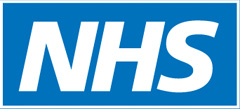Dermatologists specialise in diagnosing, treating, and preventing skin, hair, nail, and mucous membrane conditions. And with an aging global population and rising number of skin cancer diagnoses, dermatologists play an increasingly crucial role in both the medical and cosmetic fields.
The role of a dermatologist
Life as a dermatologist offers huge amount of day-to-day variety. Both in where you can work and the skin conditions you’re required to treat. According to the UK’s NHS (https://www.healthcareers.nhs.uk/explore-roles/doctors/roles-doctors/medicine/dermatology), patients could present with approximately 2,000 different skin conditions, and as a dermatologist you could be involved in:
- Removing skin cancers.
- Diagnostic biopsies, for example of rashes.
- UV light therapy for inflammatory dermatoses.
- Contact dermatitis investigation.
- Intralesional injections (for example steroid, botulinum toxin)
- Cryosurgery for precancerous or benign skin lesions
And as your career progresses, there are roles as consultant dermatologist with the responsibility for leading large multidisciplinary teams, available to you.
Training to becoming a dermatologist in the UK
The route to becoming a consultant dermatologist is a long, intense and competitive one.
In the UK this journey starts with medical school, which is then followed by a two-year foundation programme. This sees them working in six placements in different settings.
After the foundation programme, specialty dermatology training starts – which takes a minimum of six or seven years to complete.
Typically, during the penultimate year of this higher specialty training, trainee dermatologists take the Specialty Certificate Examination in Dermatology (SCE Derm).
Once this exam and their higher specialty training has been completed, a dermatologist is awarded a Certificate of Completion of Training (CCT), enabling them to gain entry to the GMC Specialist Register, and finally be recognised as a Consultant Dermatologist.
Dermatology Training for International Medical Graduate
Like UK doctors, if you’re an international medical graduate, you’ll need to complete, or evidence the completion of, a 2-year foundation training and will definitely need to complete a UK specialty training program if you want to become a consultant dermatologist.
The exact route you’ll need to take depends on how much previous experience you have. The options are:
- Certificate of Completion of Training (CCT) – for new graduates and those who have not already completed postgraduate training in dermatology.
- Certificate of Eligibility for Specialist Registration Combined Programme (CESR-CP) – for those who have some postgraduate experience.
- Certificate of Eligibility for Specialist Registration Combined Programme (CESR) – for those who have completed postgraduate training in dermatology.
Registering with the GMC
Any doctor who wats to work or train as a dermatologist in the UK must be registered with the General Medical Council (GMC). The GMC register ensures that every doctor has the right knowledge, skills, qualifications and experience to work across the UK.
The registration process involves:
- Ensuring your medical qualifications are recognised by the GMC.
- Taking an English language test.
- Sharing your medical registration, licences and certificates of good standing.
- Demonstrating you have the necessary knowledge and skills to practice in the UK.
- Attending an in-person ID check.
Dermatology training in the UK and your visa
As an international medical graduate, you’ll need to apply for a visa to complete both your foundation training and specialty dermatologist training.
If you are applying for the foundation programme you must first apply for a Health and Care visa.
Once your have completed your foundation training, if you want to ramain in the UK to complete your specialty dermatology training, you’ll have to re-apply for, or extend, your Health and Care visa.
Head to the BMA website for more information about UK visa requirements (https://www.bma.org.uk/advice-and-support/international-doctors/studying-and-training-in-the-uk/training-in-the-uk-and-your-visa)
Supporting your dermatologist training with e-Derm
Our online dermatology learning course, e-Derm, is an ideal way to support your training as a dermatologist.
It’s been developed by the British Association of Dermatologists (BAD), in partnership with NHS England Technology Enhanced Learning, and is based on the Joint Royal Colleges of Physicians Training Board curriculum for specialist training in dermatology. Ensuring the course meets the real-world training needs of dermatologists and offers a world-class elearning experience.
29 interactive learning sessions, covering all areas of the approved curriculum, use a mix of clinical scenarios and knowledge-based sessions to teach the diagnosis and management of common dermatological conditions.
Plus, for those approaching the end of their specialty dermatology training, there are 2 sessions of Specialist Certificate Examination (SCE) practice questions.
While throughout the course, high-resolution images allow you to see skin diseases in all stages of their development allowing you to gain a rounded understanding of the range of clinical presentations.
Each engaging elearning session takes approximately 20 minutes to complete and can be completed in any order you choose. Making e-Derm fit in with your busy work life.




